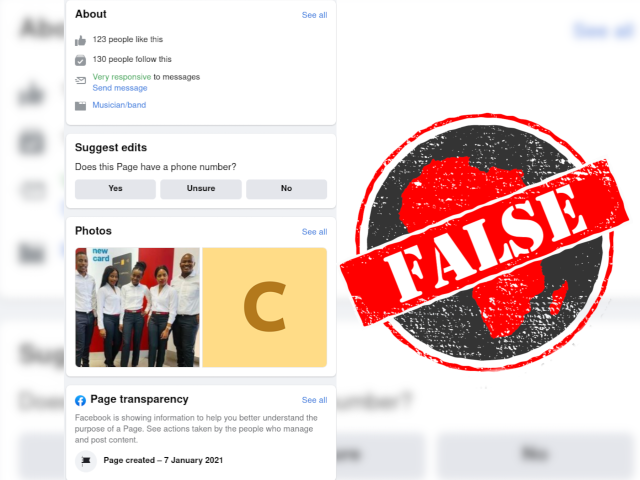The Facebook page “New jobs” claims to advertise jobs at South African companies, such as Capitec Bank and the retailers Woolworths and Markham.
Applicants are offered salaries from R3,500 to R13,500 a month and generally need only a grade 10 qualification to apply.
But the page is a scam, one of many Africa Check has exposed for posting fake job ads.

The “New jobs” Facebook page was created in July 2020 and already has over 22,000 followers.
The first red flag is that Facebook users are asked to share and comment on posts, sometimes with their personal details, for example the province they live in.
This is an example of engagement bait – posts that ask people to interact by liking, commenting or sharing. The more people do this, the greater the Facebook page’s reach.
Some posts include links, supposedly to online application forms, but these are all dead ends.
Instead of being taken to a legitimate employment website, you are taken to an unrelated, basic-looking website called jobscamp.co.za. It is full of pop-up ads and colourful banners.
Africa Check previously investigated the website and found that its owner was earning money from views and clicks. None of the vacancies posted here or on the Facebook page “New jobs” are legitimate.
For further useful information, read our detailed guide on how to identify job scams. – Africa Check
Applicants are offered salaries from R3,500 to R13,500 a month and generally need only a grade 10 qualification to apply.
But the page is a scam, one of many Africa Check has exposed for posting fake job ads.

Look out for inconsistencies
The “New jobs” Facebook page was created in July 2020 and already has over 22,000 followers.
The first red flag is that Facebook users are asked to share and comment on posts, sometimes with their personal details, for example the province they live in.
This is an example of engagement bait – posts that ask people to interact by liking, commenting or sharing. The more people do this, the greater the Facebook page’s reach.
Some posts include links, supposedly to online application forms, but these are all dead ends.
Instead of being taken to a legitimate employment website, you are taken to an unrelated, basic-looking website called jobscamp.co.za. It is full of pop-up ads and colourful banners.
Africa Check previously investigated the website and found that its owner was earning money from views and clicks. None of the vacancies posted here or on the Facebook page “New jobs” are legitimate.
For further useful information, read our detailed guide on how to identify job scams. – Africa Check
Republish our content for free
For publishers: what to do if your post is rated false
A fact-checker has rated your Facebook or Instagram post as “false”, “altered”, “partly false” or “missing context”. This could have serious consequences. What do you do?
Click on our guide for the steps you should follow.
Publishers guideAfrica Check teams up with Facebook
Africa Check is a partner in Meta's third-party fact-checking programme to help stop the spread of false information on social media.
The content we rate as “false” will be downgraded on Facebook and Instagram. This means fewer people will see it.
You can also help identify false information on Facebook. This guide explains how.




Add new comment